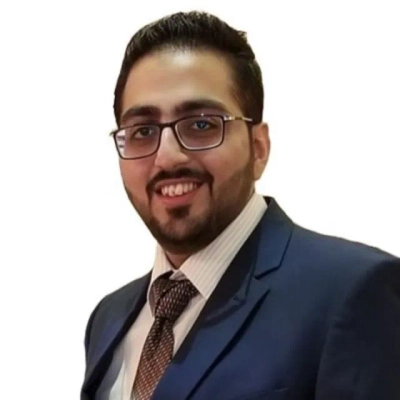How to Develop Leadership Skills: a Career Coaching Strategy
Embark on a transformative journey to leadership excellence crafted by career coaching gurus. This article unpacks a trove of expert strategies for honing indispensable leadership skills. Delve into sage advice on building a robust leadership toolbox, mastering communication, and navigating workplace conflicts with precision.
- Build Your Leadership Toolbox
- Develop Emotional Intelligence
- Master Clear and Purposeful Communication
- Enhance Self-Awareness Through Reflection
- Understand Leadership and People Deeply
- Define Your Leadership Success Metric
- Implement Structured Mentorship Programs
- Navigate Conflicts With Thomas-Kilmann Instrument
Build Your Leadership Toolbox
This question really goes to the heart of what we do at Unicorn Labs. One of the most effective strategies I recommend is thinking about leadership as building a "toolbox." Every leader, over time, accumulates a collection of skills and mindsets that you can draw upon when needed. You don't use every tool daily, but you have them ready for the right situations.
Being an effective leader isn't about having all the answers or fixing every issue yourself. It's more about guiding your team and knowing when and how to use the tools you've collected. Realizing this has significantly eased the pressure for me, and it can do the same for you, making leadership feel more manageable, accessible and even enjoyable.
For those looking to develop their leadership skills, there are many approaches, from attending formal training to engaging with leadership resources. However, one of the simplest and most impactful methods I've found is just to start noticing things about your own leadership style. Say you're hesitant about giving feedback-acknowledging that is your starting point. Say you get heated during moments of conflict-noticing the pattern is critical to change it.
Here's how this all comes together in an actionable step: Start by doing an inventory of what's already in your toolbox. Identify the skills you have and pinpoint the ones you want to master or improve. This helps you understand what you're looking to add to your toolbox. Each day, pay close attention to your actions and decisions as a leader. Look for moments where you feel unsure or recognize a gap in your abilities. Growing as a leader usually involves moving from not knowing you need a particular skill, to recognizing and developing it, and finally to mastering it so completely that it becomes a part of you.
This method of introspection doesn't just add tools to your collection; it also sharpens them, ensuring you're well-prepared for a variety of leadership scenarios. It's about evolving from just doing tasks to thoughtfully guiding others and from managing to empowering. Adopting this mindset can dramatically improve your own leadership effectiveness and help your team grow alongside you.

Develop Emotional Intelligence
One powerful strategy I use in executive coaching to develop leadership skills is focusing on emotional intelligence. Effective leaders possess strong emotional intelligence, which encompasses self-awareness, self-regulation, motivation, empathy, and social skills. By working on these core components, clients can enhance their ability to connect with others, build strong teams, and navigate complex interpersonal dynamics. Emotional intelligence isn't just a soft skill; it's a critical driver of leadership success. Leaders with high EQ are better equipped to inspire, influence, and motivate their teams.
A concrete action step clients can take to develop their emotional intelligence is to practice active listening. This involves fully concentrating on what the other person is saying, asking clarifying questions, and reflecting back what you've heard. Active listening demonstrates respect, builds rapport, and allows for deeper understanding. It's a fundamental skill that strengthens relationships and enhances communication, both essential for effective leadership. By consciously practicing active listening, clients can improve their empathy, enhance their social skills, and ultimately become more impactful leaders.

Master Clear and Purposeful Communication
One key strategy I use to help clients develop their leadership skills is teaching them to master the art of clear and purposeful communication. Leadership isn't just about delegating or setting a vision, it's about how effectively you convey that vision, align your team's efforts, and inspire action. I emphasize the importance of crafting messages that resonate with both logic and emotion, ensuring that leaders not only get buy-in from their teams but also foster trust and motivation. For example, I once worked with a CEO of a midsize logistics company who struggled with high turnover because employees felt disconnected from leadership. By coaching him to deliver concise, meaningful messages during meetings, and by teaching him how to actively listen and address team concerns directly, we saw turnover drop by 40% in under a year. These results stemmed from my experience working with hundreds of business owners and my training in organizational psychology, as part of my MBA in finance, to help leaders not just grow businesses but connect with their people.
An immediate action step any leader can take is to implement what I call the "2 minute connection" technique. Each day, take two minutes to genuinely engage with a different member of your team. Ask them about their challenges, share a quick insight, or simply thank them for their efforts. It may sound simple, but this consistent personal touch builds trust and demonstrates that you value their contributions. In my years of coaching, I've found that when leaders make this small yet intentional effort daily, it creates a ripple effect in the culture of the business, driving engagement and loyalty from the ground up.
Enhance Self-Awareness Through Reflection
Good day,
What is one strategy you use to help clients develop their leadership skills?
I am Dr. Gregory Gasic, Neuroscientist, Scientific Consultant, and Co-founder of VMeDx; one key strategy I use to help clients develop their leadership skills is focusing on self-awareness through reflective practices. I encourage clients to actively assess their strengths, weaknesses, and leadership styles using tools like 360-degree feedback, personality assessments, or leadership frameworks like emotional intelligence (EQ).
For instance, I guide clients to reflect on how their decisions and communication styles impact their team, fostering a deeper understanding of their leadership dynamics. By developing self-awareness, leaders can identify areas for growth, improve interpersonal relationships, and align their actions with their core values and organizational goals. This foundation of self-awareness enhances decision-making and problem-solving and empowers clients to lead with authenticity, empathy, and confidence in complex environments.
What is one action step they can take?
One actionable step clients can take to develop their leadership skills is to regularly practice structured reflection, such as maintaining a leadership journal. In this journal, they can document key decisions, challenges, successes, and interactions with their team, followed by a brief analysis of what went well, what could be improved, and how they felt during those moments.
For example, after a team meeting, they might reflect on questions like: Did I communicate clearly? Did I actively listen? How did my actions align with my leadership values? Over time, this practice helps them identify patterns, gain insights into their leadership style, and make intentional adjustments to improve their effectiveness. This step builds self-awareness, a crucial foundation for strong, adaptive leadership.

Understand Leadership and People Deeply
I encourage my clients to deeply understand leading and to learn to deeply understand people. I urge them to begin by exploring their beliefs, assumptions, and biases about leading and about people and to identify and reframe unhelpful and outdated myths and beliefs. I especially invite them to consider the role that power plays in traditional leadership dynamics, to think about how power is represented, and to explore ways in which it might be possible to lead without reliance on power dynamics. This exploration positions leaders to be able to craft and document their personal people ethos and leadership brand, to clearly define what they believe about people and the quality standards that they are setting for themselves as leaders. It also enables them to begin to build a glossary of leadership language that they will choose to use and to specifically identify common terms and words that they will avoid. Through this process, leaders become aware of their own power and of the pervasiveness of poor and ineffective leadership. They begin to think about their actual and potential impact and how they can maximize their ability to facilitate meaningful change for and with others. Most importantly, they come to see that influence is an inevitable privilege and responsibility and that it is vital to do so with intentionality, vision, integrity, and ethical awareness.

Define Your Leadership Success Metric
"How will you know you are a good leader?" is where I start. Most people are more interested in what they need to do to advance rather than on what the people around them will feel about their leadership if they are successful. Leaders get nervous and become more "me" focused when, if they concentrate on who they serve, what that audience needs, and how they want to show up for them, they will better understand where they can apply their strengths to make a difference. Once they determine the metric for their success they have a True North and are not wandering through an accidental career with notions of leadership that don't tie to their values.
Implement Structured Mentorship Programs
A structured mentorship program can effectively enhance leadership skills within an organization by pairing experienced leaders with emerging talent. This setup fosters practical learning and personalized feedback through regular meetings and collaborative projects. It promotes knowledge transfer, continuous learning, and accountability, motivating mentees to seek guidance and observe effective leadership styles in action.

Navigate Conflicts With Thomas-Kilmann Instrument
Leadership entails navigating the inevitable conflicts of life with grace and efficiency. For leadership skill development, I use an exercise based on the Thomas-Kilmann Conflict Mode Instrument (TKI). The qualitative scores from the test can demonstrate how frequently a client uses each of the five conflict management styles. I then ask the client to write a story for each of the conflict styles about a time where the style worked for them, and when it backfired. We use those real-life examples to guide conversations about where a client may be overusing or underapplying a style.




